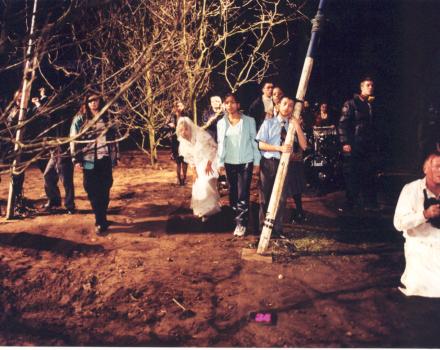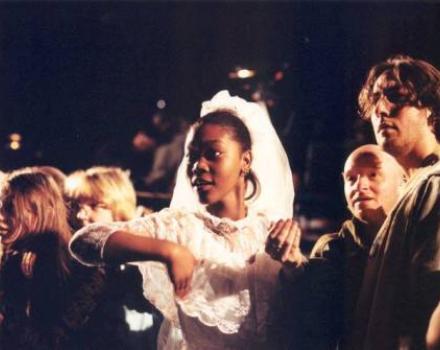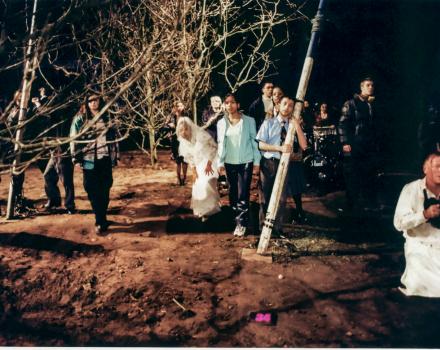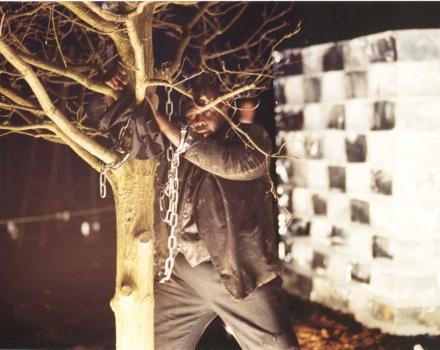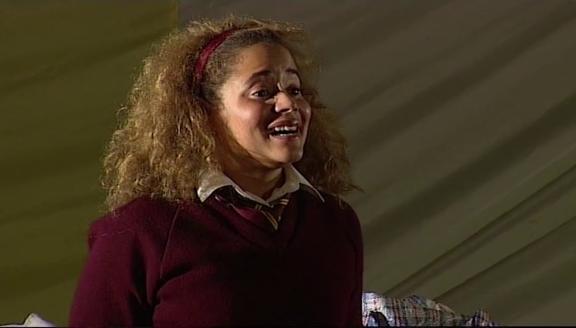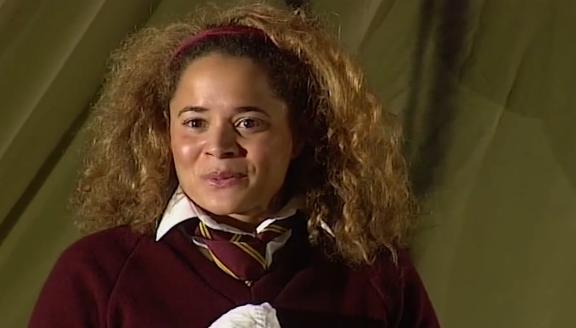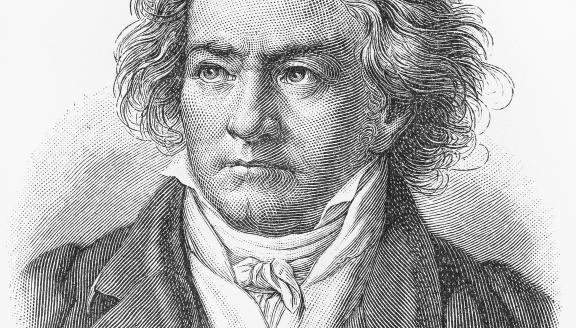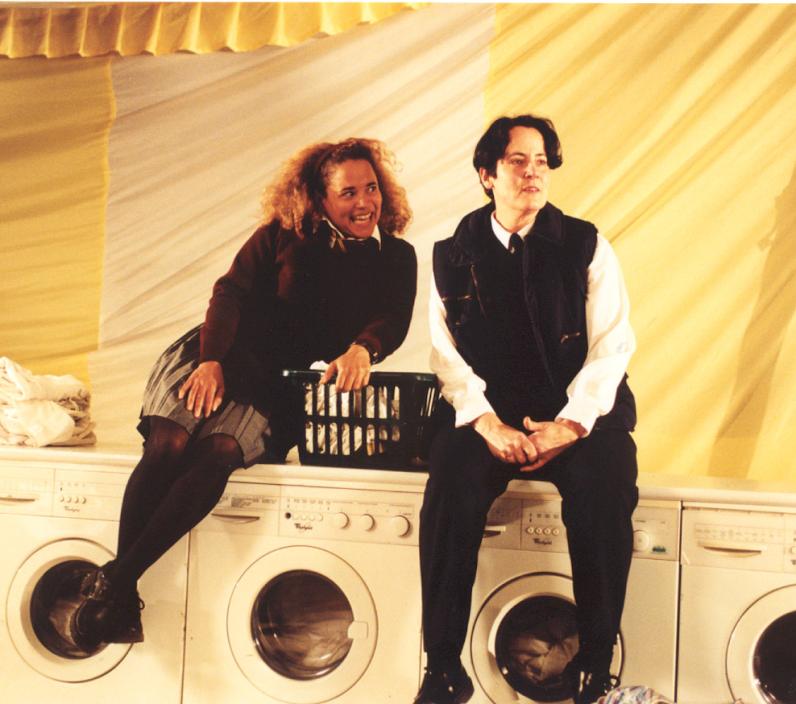

Fidelio

Under the most complicated circumstances, when the world seems impossibly dark, a woman takes her life into her own hands. She risks everything to save her politically imprisoned husband - and sets herself free.
The Birmingham Opera Company's production set in an enormous circus tent and mixing professional and amateur performers powerfully explores what oppression means today. The striking image of over 200 local people participating in their own imprisonments and experiencing freedom will stay with you for a long time to come.
Cast
Florestan | Ronald Samm |
|---|---|
Leonore | Jane Leslie MacKenzie |
Rocco | Jonathan Best |
Marzelline | Donna Bateman |
Jaquino | John Upperton |
Don Pizarro | Keel Watson |
Don Fernando | Michael Druiett |
| ... | |
Music | Ludwig van Beethoven |
|---|---|
Conductor | William Lacey |
Director | Graham Vick |
Sets | Paul Brown |
Lighting | Robert A Jones |
New orchestral version | Julian Grant |
New version of the play | Sarah Woods |
| ... | |
Video
The story
Leonore, disguised as a man named Fidelio, has secured a post at the prison where she suspects her husband, Florestan, is being illegally incarcerated. Marzelline, the daughter of chief gaoler Rocco, has fallen in love with Fidelio, much to the annoyance of fellow employee Jaquino.
Fidelio persuades Rocco to share supervision of the inmates. Upon overhearing plans to kill the prisoner in solitary confinement, Fidelio secures permission to assist in preparing the grave.
Deprived of light, air, nourishment and liberty, Florestan considers his hopeless situation, seeing a vision of Leonore leading him to freedom. Upon hearing his voice, Fidelio recognises her husband, reveals herself as Leonore and threatens the governor, Pizarro, with a gun. At that very moment, the Minister arrives and announces a pardon for all prisoners, allowing Leonore to finally release her beloved Florestan.
________________________
Beyond the classic retelling of the opera, Birmingham Opera Company’s Fidelio is a story of personal, political and social imprisonment and liberation.
In the interval, every audience member was issued with a numbered black bag. At that point in the performance, they had already been subjected to violence by riot police, had been imprisoned and then released. They were already a part of the performance. When they returned to the tent, they had to find their numbers and stand on them. On instruction, they had to place the black bag over their head. Sharing Florestan's experience of imprisonment in darkness, every audience member stood for nine minutes, beyond reach, in complete darkness, listening, until the words ‘Leonore's coming’. That was their cue to remove the hoods as Leonore - and Beethoven - brought the light of hope into their darkness.
Insights
Breathe Life in
How Graham Vick’s productions remove barriers
Opera companies the world over are searching for novel ways to reach their audiences, an effort that has only redoubled with the impact of the pandemic on the performing arts sector. Birmingham Opera Company is a somewhat miraculous exception in that landscape. Artistic director Graham Vick has always conceived of opera as a vector of change and communication.
As artists, our challenge is not how to give but how to give back - and I mean give back to everyone across our increasingly complex and rich melting pot of peoples. Music effects change by touching humanity.
Vick is no stranger to the world’s leading opera houses, yet he keeps returning to his native Birmingham to stage performances. There, his artistically ambitious and intellectually challenging productions make no easy concessions to their audience, a significant part of which is a newcomer to the artform. Nonetheless, the local community flocks to participate and engage in Vick’s productions. What then is his secret?
Liberating what is already there
Although Vick is known for his experimental productions, his approach to stage direction is not iconoclastic. His work - ‘from the highly complex multi-faceted productions challenging the audience to make choices, to the austere essential stage worlds encouraging them to fill the empty space with imaginative response’ - always centers around the music, seeking to release it.
Vick takes his cue from the music’s interaction with meaning and attempts to guide the performers towards identifying with the material in such an authentic way that through them it is reborn. This process of removing barriers and promoting direct personal encounters, Vick understands, also applies to the public. ‘Everything is already there, already familiar - if only it can be liberated.’
At eye level
Vick’s productions meet their public at eye level. Convinced that opera belongs to everyone, the Birmingham Opera Company goes out to actively find its audience on its own turf. ‘You do not need to be educated to be touched, to be moved and excited by opera. You only need to experience it directly at first hand with nothing getting in the way,’ says Vick. He acknowledges and takes on the responsibility to proactively remove the barriers and make the connections that will release opera’s power for everybody.
It comes as no surprise that the local community in all its ethnic, religious and social diversity is invited and encouraged to physically engage in his ‘immersive theatre’ in an open, empowering dialogue. It is obvious from the productions’ sheer force that the ongoing relationship of mutual trust is enriching to all involved. There are no gatekeepers in Vick’s productions, everyone is entitled to their voice and no auditions are held among the community. The process resembles a constantly evolving experiment.
Oh what joy, in the open airFreely to breathe again!Up here alone is life!
The 2002 staging of Fidelio, one of Vick’s personal favourites, is an astounding early example of how immersive theatre, when done right, can free us all. Conceived as a provocation, the whole audience follows Leonore on her quest to find her enchained husband. The result is a mythic journey into the prisons we all build for ourselves. As over 200 local people participate in their own imprisonment and experience freedom, the ensuing liberation is not imaginary, not acted out, but genuine. This, perhaps, is Vick’s secret.
Gallery
